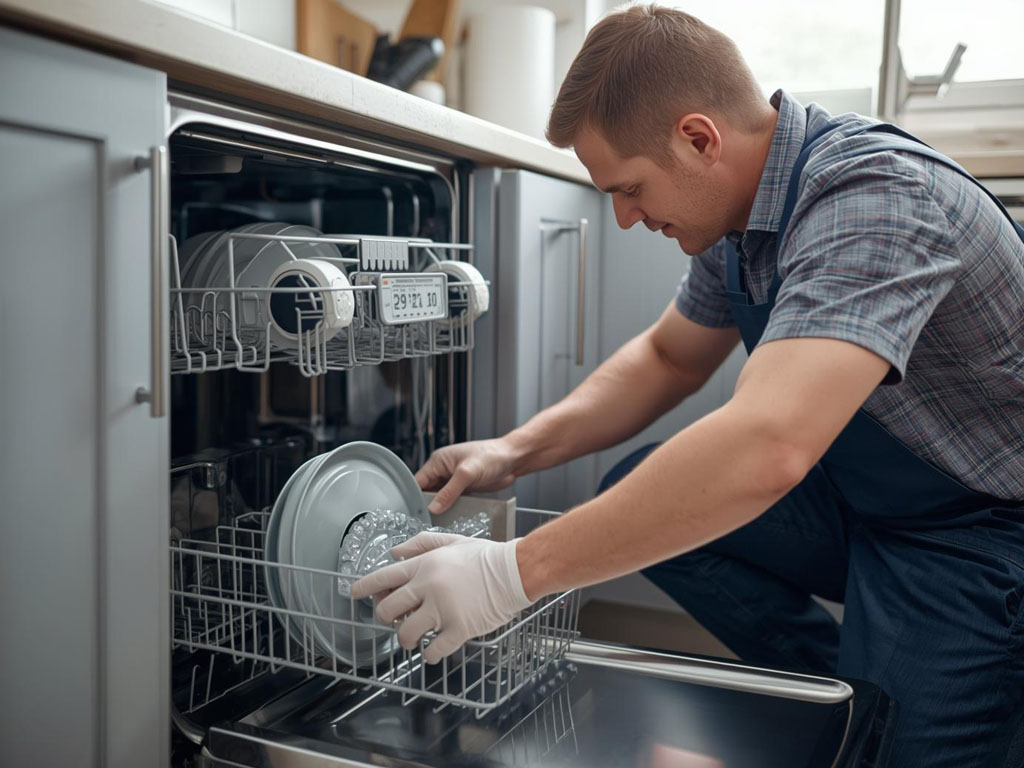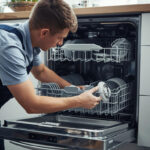A dishwasher is a constant assistant in the kitchen, saving time and protecting skin from harsh detergents. When dishwasher not running properly ruins the routine, smart dishwasher troubleshooting beats guesswork. Below we outline common dishwasher problems and show how to troubleshoot a dishwasher before you call in a pro.
What are the basic troubleshooting tips from a professional technician?
Real-world service starts with careful diagnosing dishwasher problems, not random part swaps. Here are frequent scenarios and what to try at home first:
- If you have problems with power and startup (questions: my dishwasher won’t start? / why wont my dishwasher turn on?). Confirm the outlet and breaker, inspect the plug and cord, and make sure the door latch clicks closed. Some models won’t start if a delayed-start is active or the child lock is on.
- If you have problems with the filling (questions: water not flowing to dishwasher?). Open the supply valve fully, check the inlet screen, and clear debris in the valve, filter, or hose. Low pressure can mimic a fault.
- If you have poor cleaning (questions: dishwasher isnt cleaning dishes? / why isn’t my dishwasher cleaning properly?). Rinse big scraps, clean the filter, avoid blocking spray arms, and dose detergent correctly. Cloudy film often means the rinse aid is low; adjust the setting and run a hotter cycle.
- If you have problems with drying (questions: fix a dishwasher that won’t drain?). Empty the sump screen, verify the drain hose loop, and check the disposal knockout if recently installed. If the pump hums but doesn’t move water, stop and schedule service to prevent motor damage.
Users also worry about stains or streaks. White spots usually mean you need regenerating salt or more rinse aid. Brown or white scale points to mineral build-up, run a descaling cycle with a dishwasher-safe cleaner. Greenish stains are typically pigment from low-quality detergent, not mold at wash temperatures; switch products and retest.
What is a dishwasher control module?
The dishwasher control module is the “brain” of the programs. Modern machines analyze temperature, water use, and program logic through the control board. If the board fails, dishwasher stops working even though lights may be on. Because that module coordinates heating, filling, washing, and draining, DIY replacement risks more damage. Let trained appliance techs handle parts sourcing and calibration; that’s what to do when your dishwasher stops working beyond basic checks.
When to call a dishwasher repair service?
If repeated attempts at how to diagnose dishwasher problems still lead to intermittent errors, leaks, or tripped breakers, pause DIY. Certified repair restores safety and performance and can extend the life span of a dishwasher. Skilled technicians handle accurate testing, genuine parts, and final verification. If you’re stuck between resets and guesswork, professional dishwasher troubleshooting saves time and prevents costly misdiagnosis.



